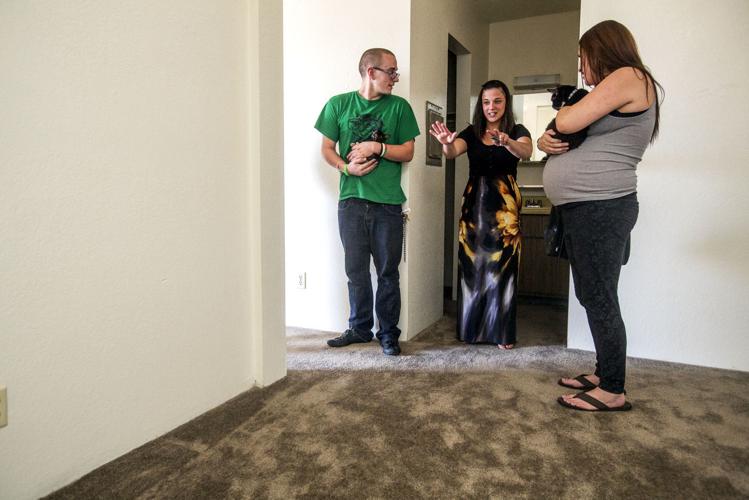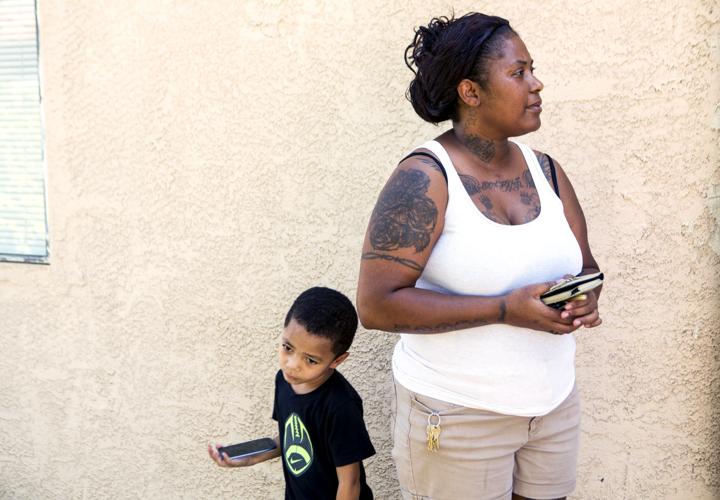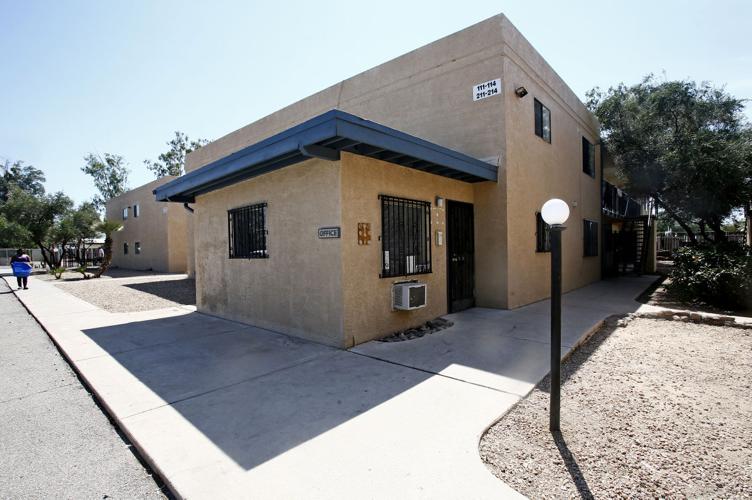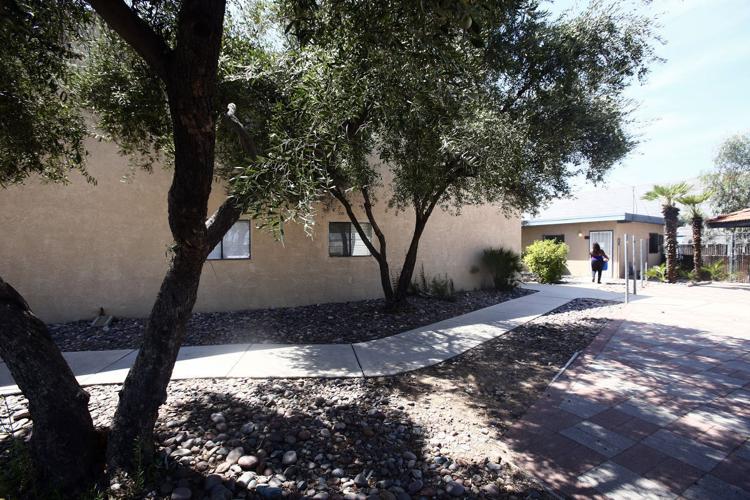A new Tucson apartment company has a surprising target market: people convicted of crimes.
“Felons are our best clients,” said Les Boynton, CEO of Second Chance Rentals, a Phoenix-based enterprise that expanded to Tucson this summer. “They value their housing.”
Renting to felons and evictees, people deemed high risk by most landlords, is the specialty of Second Chance Rentals, which Boynton calls the “safety net of homelessness.” Since 2003, he has rented to more than 22,000 people at 120 apartment complexes in Phoenix, with 85 percent completing yearlong contracts.
“Our society is very judgmental of people with credit or criminal problems,” Boynton said. “They think they’re all high-risk, but 90 to 95 percent of them are good-hearted, working-class people.”
Difficulty finding housing is a “collateral consequence” of a felony conviction, along with trouble landing a job or obtaining a business license, said Joel Feinman, an assistant Pima County public defender.
“It’s not just sex offenders or murderers who suffer these consequences,” he said. “It’s people who are convicted of possession of marijuana or felony shoplifting.”
About one-third of Boynton’s clients are felons, all of whom are nonviolent offenders, Boynton said. The company typically does not work with sex offenders, chronic drug dealers or people who are “always in and out of prison.”
Last week, Sharli Pettit and her fiancé, David Trevino, were living in a hotel, trying to figure out their next move after a neighbor attacked them and tried to break into their apartment.
Pettit is 33 weeks pregnant, and the two 19-year-olds were looking for a safe place to live where Pettit’s name could be on the lease. But their housing options were limited by her conviction for possession of methamphetamine.
“It’s really hard to find a place that allows people like me, being a felon,” she said. “All I want to do is turn my life around.”
On Wednesday morning, they heard about Second Chance Rentals and decided to check it out. By 2 p.m., they had signed a contract to rent a small apartment at Palo Verde Terrace on Tucson’s north side.
Boynton and a group of investors moved into the Tucson market with the purchase of the 52-unit Palo Verde Terrace in May. By the end of the year, they plan to buy or manage another 400 units in Tucson.
Since the beginning of the summer, more than 200 people have contacted Boynton looking for housing, and Palo Verde Terrace has gone from vacant to a 96 percent occupancy rate. By comparison, overall rental occupancy in the area has stayed around 89 percent for the past two years, says a recent report from the real estate research firm Colliers International.
Second Chance Rentals could find fertile ground in Pima County, where nearly 41,000 people were convicted of felonies in the past decade. And that doesn’t include people like Pettit and Trevino, who recently moved here from Miami, or those who left Pima County after serving their sentences.
Second Chance Rentals is likely the only Tucson company that specializes in offering housing to felons and evictees.
“To my knowledge there is no model specifically like that in Tucson,” said Mike Chapman, a specialist in multifamily housing for Tucson-based NAI Horizon, a commercial real estate company.
More than paper
The idea for Second Chance Rentals came when Boynton, who worked in property management for four decades, saw people turned away “just for what’s on a piece of paper.”
“People don’t ask the next question about who this individual is,” he said. “Maybe there’s substance below the surface.”
Boynton advocated for a change in state law and in 2003 the Arizona Residential Landlord and Tenant Act was amended to allow a “social service provider” to sign bulk-lease agreements with property owners and then rent directly to individuals and families.
As a result, Second Chance Rentals was created to serve as the marketing arm of Step-by-Step Transitional Living, a Phoenix nonprofit that offers a mentoring program that includes twice-monthly apartment inspections, help accessing social services and education, help with budgeting and finding a car, and other services.
The program comes with a price: Clients pay a program fee, which Boynton said usually amounts to $83 or $100 more per month.
A 375-square-foot studio apartment with an alcove at Palo Verde Terrace costs about $500 per month. A 550-square-foot one-bedroom goes for about $600, and an 800-square-foot two-bedroom costs $600 to $700 per month.
Apartments of similar sizes in the area go for about $440, $550, and $650, respectively, according to market data provided by Chapman.
The premium allows Second Chance Rentals to help clients when they have a “financial disruption,” such as unexpected medical bills or car repairs, Boynton said.
Where many landlords would charge late fees after five days, Second Chance Rentals gives clients 30 days to make the payment or set up acceptable arrangements, a practice that “breaks the cycle” of people using payday or title loans to make rent payments.
“People can’t fit into this square box living paycheck to paycheck,” Boynton said.
After several years of struggling to overcome evictions and a felony conviction for car theft, Rochelle Purvis, 44, was one of the first people to live at Palo Verde Terrace under the new owners.
She pays $675 for a two-bedroom apartment, including rent and the program fee. “I feel like it’s fair,” she said of the price.
However, the Second Chance Rentals program is anything but lenient. Boynton has turned down about 14,000 applicants over the years and clients are required to show proof of income. They also must keep their apartments clear of drugs and crime.
Boynton and his 20 employees also draw a hard line on clients who “know the law and like to stretch it,” he said in reference to savvy tenants who don’t pay rent but stay in the apartment while the legal eviction process unfolds.
If tenants do not pay rent on time and without explanation, they can find themselves locked out within a day or two, he said.
However, most people who are evicted are asked to leave as a result of domestic violence or drugs.
After completing the 12-month program, clients can rent directly from the property owner at the normal monthly rate.
Neighbors react
An apartment complex where one-third of tenants are felons could be worrisome to neighbors, but Sara Lopez, who has lived a few doors down from Palo Verde Terrace for three years, said the new tenants are actually quieter than the previous ones.
“It’s gotten better,” she said, noting some of the previous tenants would frequent a nearby bar and cause a drunken ruckus when they returned home.
Mark Fish, who lives down the street, said he has seen fewer police cars at Palo Verde Terrace in recent months.
“Walking to the store, you can tell people keep to themselves,” he said.
Frank Steinmetz, chairman of a Phoenix neighborhood-watch program near a Second Chance complex, said tenants didn’t cause problems with neighbors.
On Wednesday, making trouble was the furthest thing from Purvis’ mind as she walked her grandson Desmond, 3, around Palo Verde Terrace.
“Now he can come see me in my own place,” she said. “Everything is falling into place.”








